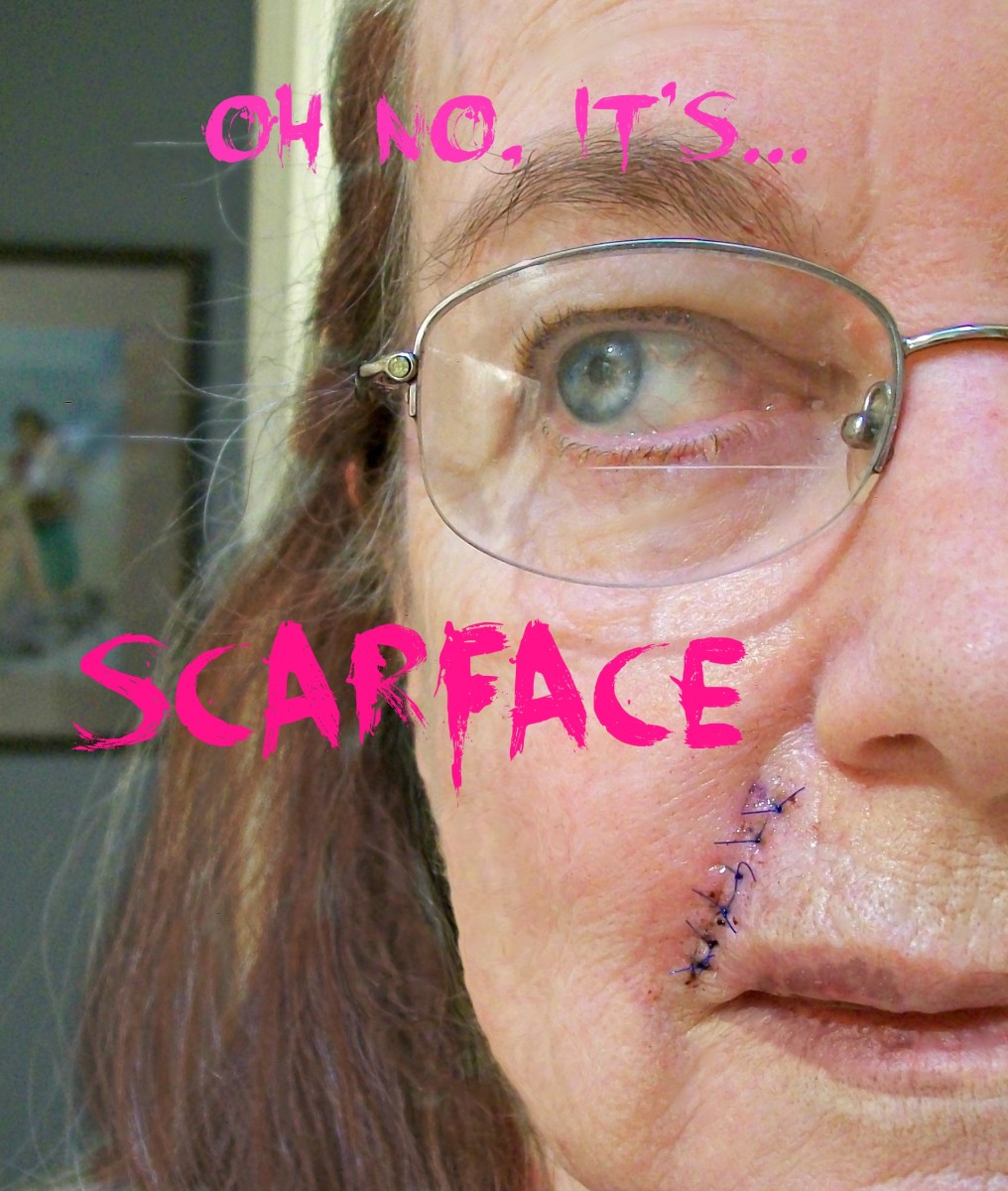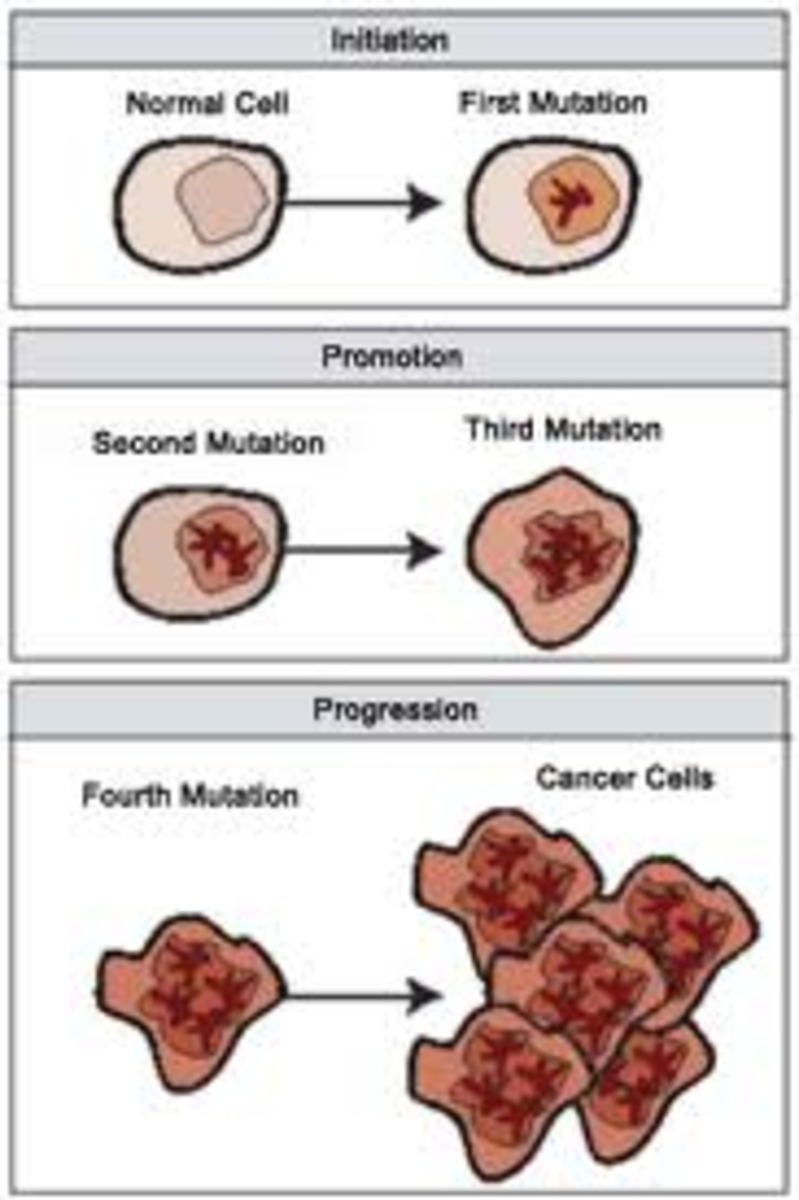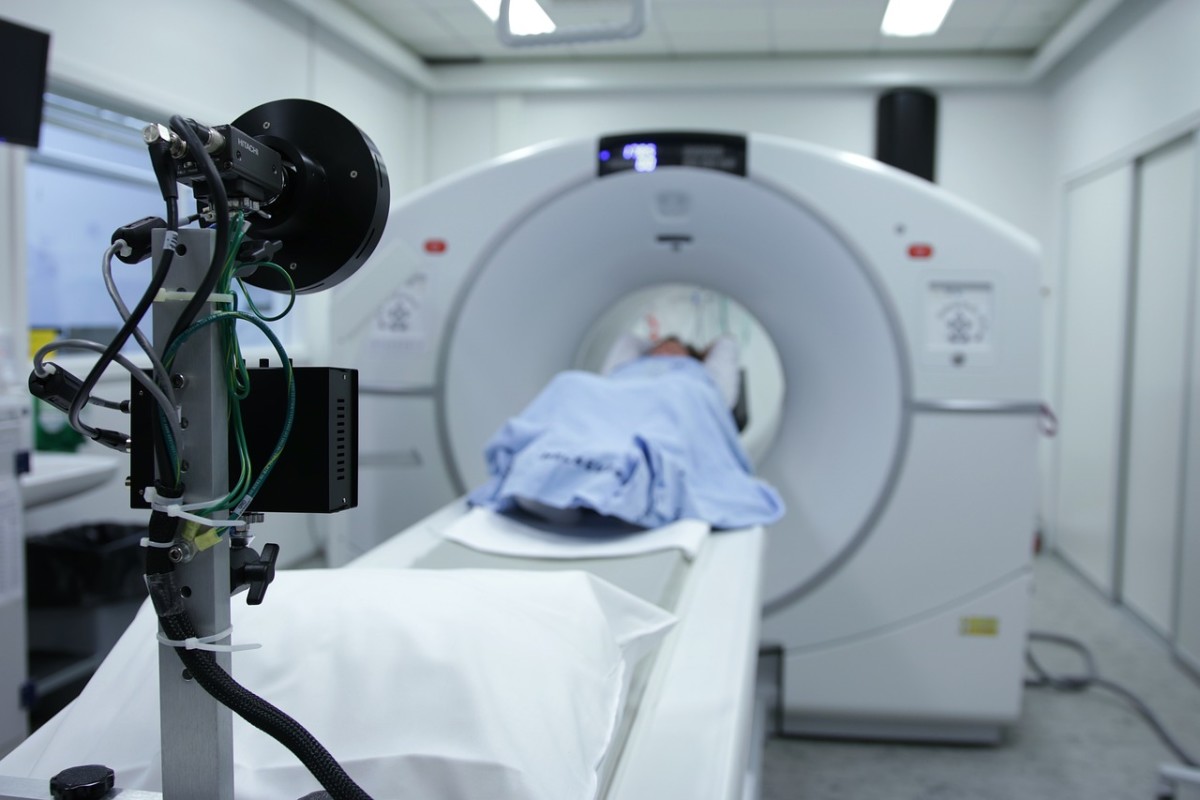Ketogenic Diet for Cancer
Introduction
With research being so broad regarding the Ketogenic diet as a cancer treatment there is still much to be learned on which cancers can be prevented or treated with this diet as well as those which do not respond significantly to metabolic changes. In general, those which do respond to this are the ones where the cancer cells feed off sugars and will starve when the body begins to fuel off the highest percentage of fats, with moderate protein and almost no carbohydrates.
Originally for Weight Loss
As you will see in the following section the details of the Ketogenic diet for weight loss are not as stringent as those needed to treat or prevent cancer. While a Ketogenic diet which contains 60-75% of daily calorie intake from fat is good for weight loss, in order to starve the cancer cells of the body that percentage needs to be increased to almost 90%.
So, the definition of the Ketogenic diet is one that “consists of high fat, with moderate to low protein content, and very low carbohydrates, which forces the body to burn fat instead of glucose for adenosine triphosphate (ATP) synthesis.”2
It is important to remember that in the standard Western diet there is usually a traditionally daily consumption of 50-75% carbohydrates. Our population has been taught for years that fat is the most dangerous piece of the diet and must be reduced in order to help prevent illnesses like heart disease, cancer, obesity and more. However, contemporary research is starting to show differently.
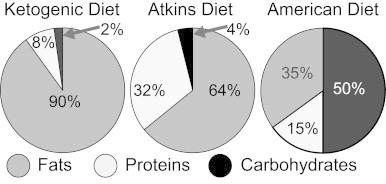
Description of the Ketogenic Diet for Cancer
The basic diet for cancer cells of all sorts are blood sugars, which we gain from the carbohydrates in our diet. Therefore, if the body is removed of those sugars or carbohydrates then the cancer cells are basically starved of all the fuel they would need to grow. So, the important thing to remember is that the change in diet means that your body’s primary energy source becomes fat:
"In general, a ketogenic diet used for weight loss is about 60-75% of calories as fat, with 15-30% of calories from protein and 5-10% of calories from carbs.
However, when a ketogenic diet is being used therapeutically to treat cancer, the fat content may be significantly higher (up to 90% of calories) and the protein content lower."1
It is hard to imagine compiling the daily diet to be of 90% fat with only 10% total carbs and proteins combined. After the many years that we have been taught to lower fat consumption as a whole because of its relation to the many illnesses that kill us.
As mentioned several times previously it is often hard to imagine the fact that the diet with such a high percentage of fat is actually good for the body, and that it provides “clean” energy on which we can work. There is a fairly simple definition of the Process of Ketosis in an article by Dr. David Jockers DC, MS, CSCS: “Ketosis was a beneficial process the human body developed as an adaptation to times when food was unavailable (such as for these hunter-gatherers). However, you can effectively produce ketones too by limiting the carbohydrates in your diet to less than 80 grams daily and protein to no more than 1.2 grams of protein/per kg lean body mass. As the body adapts to the use of ketone metabolism over time, the hormone in the liver that is essential to ketone metabolism (known as FGF21) becomes more efficient.”3
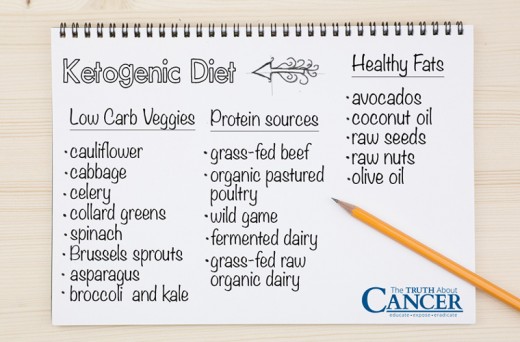
Additional Details of the Ketogenic Diet
Some additional details of natural ingredients to be included in the most beneficial Ketogenic diet built for cancer patients include, “Organic acids, antioxidants, and enzymes are recommended to help the body develop an alkaline environment. When organic acids are metabolized, foods such as low-sugar fermented drinks, dried herbs, lemon, lime, and apple cider vinegar help to weaken cancer cells by neutralizing acidity and increasing cellular oxygenation.”3
Additionally, it is important to remember that the most natural diet is the best at starving or killing cancer cells. While we have, in the past, been turned toward different fads of high-protein diets and their health benefits, this is not the case for cancer patients. “Diets high in protein are also capable of feeding cancer. A moderate protein diet is recommended on the ketogenic diet in order to weaken cancer cells. You can starve cancer by practicing a ketogenic diet consisting of an abundance of healthy fats (about 75 percent), only 20 percent protein, and no more than 5 percent carbohydrates.”3
How the Ketogenic Diet Weakens (or Kills) Cancer Cells
In general, the Ketogenic diet stops the metabolism of glucose for the energy of cancer cells. Unlike the normal cell, which develops healthy energy off of a low-carb high-fat (LCHF) diet like Keto, the cancer cells are no longer able to grow and often begin a recessive process.
In the article “Ketogenic diets as an adjuvant cancer therapy: History and potential mechanism,” several researchers describe the difference between the metabolic processes of cancer cell and normal cells:
"Compared to normal cells, cancer cells exhibit increased glucose metabolism as well as alterations in mitochondrial oxidative metabolism that are believed to be the result of chronic metabolic oxidative stress... Studies have shown increased prevalence of mitochondrial DNA mutations... in many human cancers including head and neck, prostate, ovary, and liver cancers. Previous data suggests that the susceptibility of mitochondrial DNA to mutations is largely due to the increase in ROS levels in this organelle... Overall, there is substantial literature indicating that there is a significant increase in intracellular O2•− and H2O2 in cancer cell mitochondria relative to normal cells and that this could represent a target for enhancing cancer therapy."2
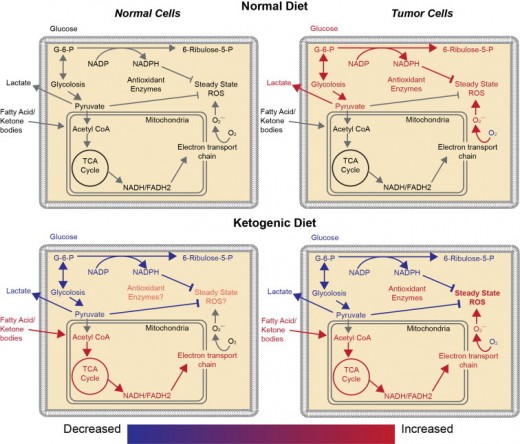
Conclusion
In addition to recent studies that have researched Ketogenic diets as supplemental cancer therapy in animals and humans alike, original findings back to 1987 (Tisdale et al.) saw decreased tumor weight and improved cachexia in mice with colon adenocarcinoma xenografts who were fed a Ketogenic diet. Since then, many studies have shown Ketogenic diets to reduce tumor growth and improve survival in animals with malignant glioma, colon cancer, gastric cancer and prostate cancer. Much more research is yet to be done on human patients, but there is significant information to support the worthwhile development of the studies on dietary benefits for patients of cancer and other deadly diseases.






